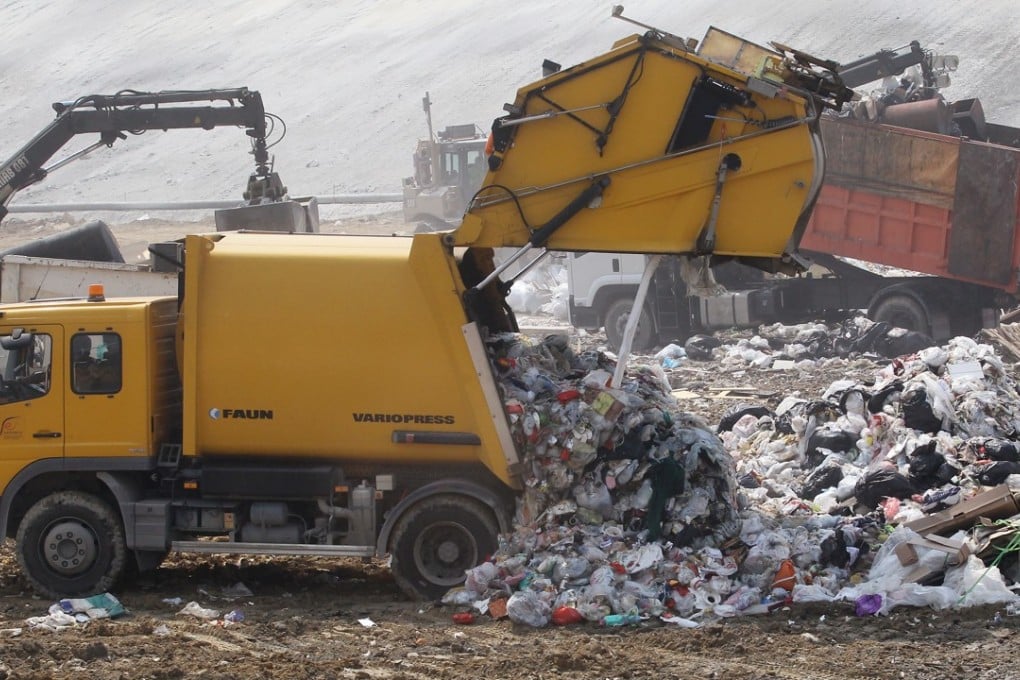Calls to ramp up manpower to prevent illegal dumping in new Hong Kong waste-charge plan
Groups argue against charging buildings for trash disposal and suggest bills per flat instead, as well as increasing the number of inspection officers

Green groups and a union for environmental protection workers have urged the government to set up a designated office with up to 1,000 staff to boost enforcement of laws on the dumping of waste.
The group also argued against the model of one single charge for a whole building hiring private rubbish collectors. It suggested individual flats be billed instead.
The Environment Bureau has proposed a quantity-based charging scheme of 11 cents per litre on the disposal of municipal solid waste. Full implementation is expected in the second half of 2019.
To facilitate the scheme, six green groups and a workers’ union urged the government to set up an additional “waste reduction office” under the bureau, to carry out checks around the city’s public areas and private housing estates.